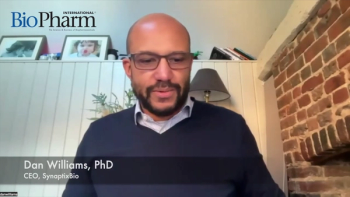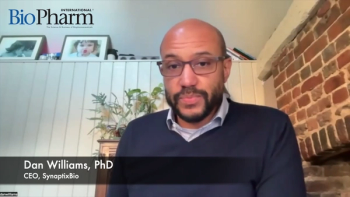
BioBusiness
Latest News
Latest Videos

More News

Industry leaders at Meeting on the Mesa discussed big biopharma’s role in next-step CGT scale, focusing on manufacturing quality and patient access.

To increase CAR-T patient access, healthcare professionals must standardize high-quality delivery, shift to outpatient settings, and overcome current logistical barriers, industry leaders said at a session during the Cell and Gene Meeting on the Mesa.

Naobios and Olon France create custom HCP ELISA to advance vaccine trials and strengthen global biopharmaceutical manufacturing capacity.

Novartis expands its immunology pipeline with the Tourmaline acquisition and tests direct-to-patient model to reshape drug manufacturing strategies.

BIO-Europe 2025 in Vienna will gather global biopharma leaders to explore investment, manufacturing, and rare disease innovation.

RION partners with Lonza for CGMP manufacturing of PEP, advancing exosome drug development and scalable biopharma production.

Pfizer will expand its obesity drug pipeline with Metsera’s clinical incretin and amylin programs, highlighting advances in biopharma development and manufacturing.

CPHI Pharma Awards 2025 highlight breakthroughs in bio/pharma technology, sustainable manufacturing, and industry leadership.

The Phase IIa trial will further explore the EP4 antagonist HTL0039732 in combination with immunotherapy to improve outcomes in resistant solid tumors and expand treatment options.

CSL will fund Phase III clinical development of VMX-C001 with an option to acquire VarmX.

A collaboration between Limula and Institut Paoli-Calmettes aims to advance automated stem cell transplant processing to improve cryoprotectant removal, enhance patient outcomes, and streamline manufacturing.

Novartis and Monte Rosa expand collaboration using AI-driven molecular glue degraders to advance drug development for immune-mediated diseases.

Aaron Cowley, Recipharm Advanced Bio; Renee Hart, LumaCyte; and Vibha Jawa, EpiVax, go behind the headlines to delve deeper into recent market deals driven by Big Pharma patent cliffs and the complex manufacturing of ATMPs.

Integra has secured €10.7 million (US$12.6 million) in funding for its FiCAT gene writing platform to enhance precise DNA integration for CAR-T engineering and rare disease therapy development.

Experts to share strategies on scale-up, process intensification, and data-driven methods shaping future stem cell manufacturing and therapies.

A joint venture between the two entities will integrate mRNA synthesis, LNP formulation, and clinical testing to speed therapies from plasmid design to first-in-human trials.

Aptamer will create Optimer binders for Invizius’ H-Guard technology to enhance complement-targeting therapies for safer, more precise treatments for immune disorders.

The partnership expands patient access in MENA by localizing biosimilar manufacturing and distribution for gastro, neuro, and dermatology treatments.

The acquisition expands tubular glass vial and ampoule capacity, expanding ready-to-use glass packaging capabilities in Europe.

SynaptixBio CEO Dan Williams notes how rare-disease drug development is advancing on the back of FDA incentives, priority review vouchers, and a growing recognition of unmet needs.


Bristol Myers Squibb and SystImmune’s iza-bren shows promising efficacy and safety in EGFR-mutant NSCLC after TKI and chemotherapy, backed by data from global and China-based trials.

Dan Williams, PhD, SynaptixBio CEO, discusses how rare disease drug development leverages genetic targeting and drives innovation and investment in pharmaceutical technology and precision medicine.

Strand advances targeted mRNA therapies, with Phase I STX-001 solid tumor data presented at the 2025 ASCO Annual Meeting.

Biopharma’s future depends on seamless integration of technology, expertise, and strategy.









